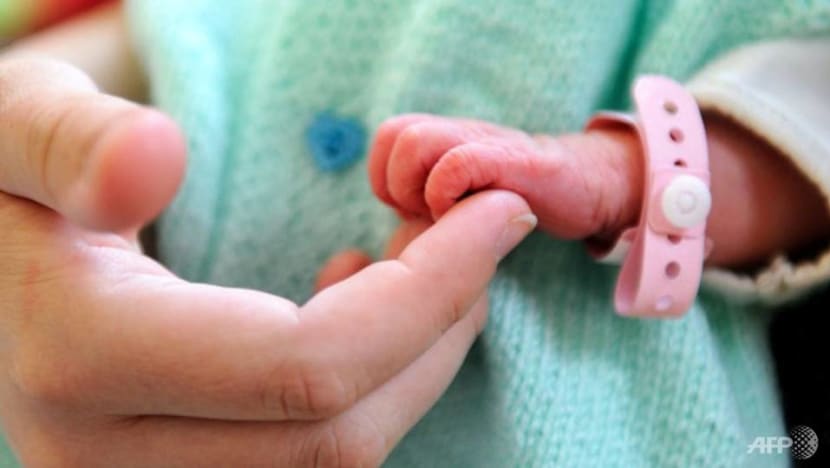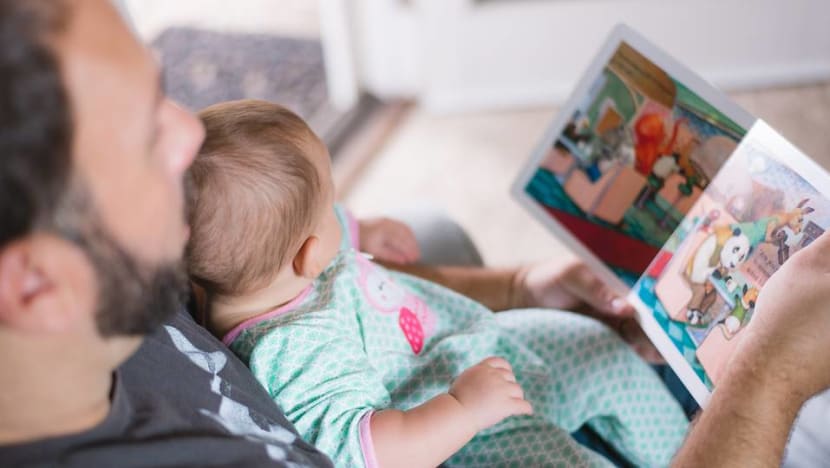commentary Commentary
Commentary: When parenthood comes knocking, life's never the same again no matter what route got you there
My best advice is to recruit well. Children with involved fathers thrive intellectually, psychologically and socially, says Chair of Inspiring Girls Lavinia Thanapathy.

(Photo: Unsplash/Fernando Pelaez)
SINGAPORE: The one thing I wished I had known earlier in life is that there is simply no good time to become a mother.
There is certainly a biologically ideal time for a woman to become a mother but that doesn’t always coincide with her career trajectory or even with her psychological readiness for mothering.
I became a mother at 38 when I acquired four stepchildren and then a biological child soon after. This is definitely not the traditional route to becoming a mother, especially for a Singaporean woman.
But once motherhood comes knocking, life is never the same again regardless of what route you took to get there. Adoption, marriage, surrogacy, IVF. None of it matters after the child arrives.
The benefit of stepchildren is that I didn’t really have to grapple with maternity leave and childcare.
That came later with an ill-timed pregnancy which came as we were about to move countries. I had a great job in Singapore that I loved but my husband’s role required him to return to Germany.
A DIFFICULT PREGNANCY
I was carrying our child at the time so I resigned from a perfectly good job with great benefits at four months pregnant and moved across the world. Women make decisions like these all the time.
The pregnancy was complicated for many reasons including my “advanced maternal age” to quote my doctor. Within months of arriving in a new country, I was hospitalised and put on bed rest. Soon after, our first son was born very prematurely.
READ: Commentary: Have we placed too much faith in science to solve all our fertility problems?
LISTEN: The Pulse podcast - High costs, high hopes and the deeper issues behind egg freezing
About 10 per cent of births in the developed world are premature. Singapore is no exception but, at the time, had almost no provisions for this.

Our premature son was covered by my husband’s German insurance from birth. In Singapore then, you could not insure a child until 14 days after birth.
So his excellent but expensive care in the Neonatal Infant Care Unit (NICU) did not cripple us financially. Thankfully, the situation has changed now in Singapore.
Caring for a child in a NICU is a full-time job. I arrived in the morning and stayed till after dinner, through at least two shifts of nurses.
Had I been in full-time employment in Singapore, my maternity leave would have been used up in the NICU with no time left to care for the baby when he came home.
READ: Commentary: A tale of two bankers and modern parenting
As it turns out, this didn’t matter as our son tragically died three days after we took him home from the hospital.
My husband’s employer stepped in to mitigate the tragedy. My husband received compassionate leave and we were both given psychological counselling covered entirely by his insurance.
The understanding and compassion from both his employer and insurers meant that we were as well cared for as we could have been at the time.
It also allowed us to try again and we had a second healthy son a year later. This time a textbook baby with a textbook birth. Even with my “advanced maternal age”.
THE MOTHERHOOD BREAK
The German system allowed my husband time off immediately upon the birth of our son and then again at any point in the first two years. But even their system is flawed in that its partial coverage of foregone salary is meant for younger parents not as advanced in their careers as my husband was and with fewer dependents.
We couldn’t avail ourselves of the standard paternity leave as it would have been financially unviable. We were supporting five children at the time.
READ: Commentary: The year of trials and tribulations, as the parent of a newborn

Returning to work for me worked out when we were posted back to Singapore and my son was four years old. He was ready for full-day pre-school and we were fortunate to find an excellent older Indonesian helper with experience.
My mother, who was living in Sydney at the time, also came back to live with us. With both my mother and a competent housekeeper at home, I was able to resume my career after an unintended seven-year break.
The benefit of my later pregnancy was that I had the financial resources to do it. I had had a successful career and was able to save and invest enough for my motherhood break.
I highly encourage all women to do this from the moment they start work. Having a motherhood nest egg will allow you to embrace pregnancy when it happened without too much financial stress.
A PARENTING PARTNER MATTERS
I had the good fortune to return to work with the National University of Singapore which had flexible work arrangements to allow me to attend to my son whenever needed.
While I am Singaporean, my son who was born in Germany is not. This meant I was either not entitled to or had reduced childcare leave options. My child not being Singaporean didn’t make him less likely to fall ill or to need his mother.
On these occasions, my husband’s far more generous German childcare allowance meant that he would often be the one to take time off to care for our son when he was sick.

This is the most crucial part of being a mother with a career. No government policy or company flexible work arrangement will trump a real parenting partner.
My husband is and always has been a dedicated father. Even when I was a stay-at-home mother, he embraced his crucial role as father and participated fully in our son’s life. He took care of bath time and a myriad other tiny jobs that are part of life with an infant.
READ: Commentary: As a father of four, I wished I had my kids earlier
The most important thing that I did was to not supervise my husband’s parenting. I fully trust his ability to be a loving father to his son. I did not believe that as the mother, I know better or that I am the “better” parent.
Children need their fathers as much as they need their mothers. The boob preference is short. Once your child is on solids, there is absolutely no reason why the father shouldn’t be as deeply involved as the mother.
RECRUIT WELL
I left my job last year, voluntarily this time to pursue an entrepreneurial path. My stepchildren are all adults now, my son is nine and I am writing this on a flight to Chile.
My son is safely in Singapore with his father, grandmother and aunty. I will use technology to keep in touch and I feel no guilt being away. He is with his father, grandmother and aunt who will all be there for him.
READ: Commentary: 'Super mums' have one simple request. Don’t hinder them from returning to work

There is no good time to become a mother or to go back to work when you are a mother. Your journey is unique to you.
My best advice is to recruit well. Children with involved fathers thrive intellectually, psychologically and socially. They are the first male role models for daughters and sons and can shape the next generation as much as mothers can.
Parenting is a team sport. Mothers are often the manager and coach bearing a disproportionate share of the invisible burdens of families.
We need to help ourselves and social norms need to evolve to families to spread the weight more evenly.
My top motherhood tips?
- Be prepared for motherhood anytime. Save for a motherhood nest egg.
- Recruit the right parenting partner. Fatherhood is not a part-time job.
- Don’t supervise your partner’s parenting. You recruited him, let him do his job.
- Leverage Singapore’s cultural and financial availability of grandparents, helpers and childcare if you can.
- When you work, work. When you parent, parent. Crossover guilt is a waste of energy.
- Work for employers who care about their employees’ holistic well-being.
- Company and country policies will change over time. Don’t rely on them but maximise them where it benefits your family.
Lavinia Thanapathy is Chair of Inspiring Girls and Vice-President of Singapore Council of Women’s Organisations. She is also Editor and Co-author of Unleash Your Voice, Powerful Public Speaking for Every Woman.












